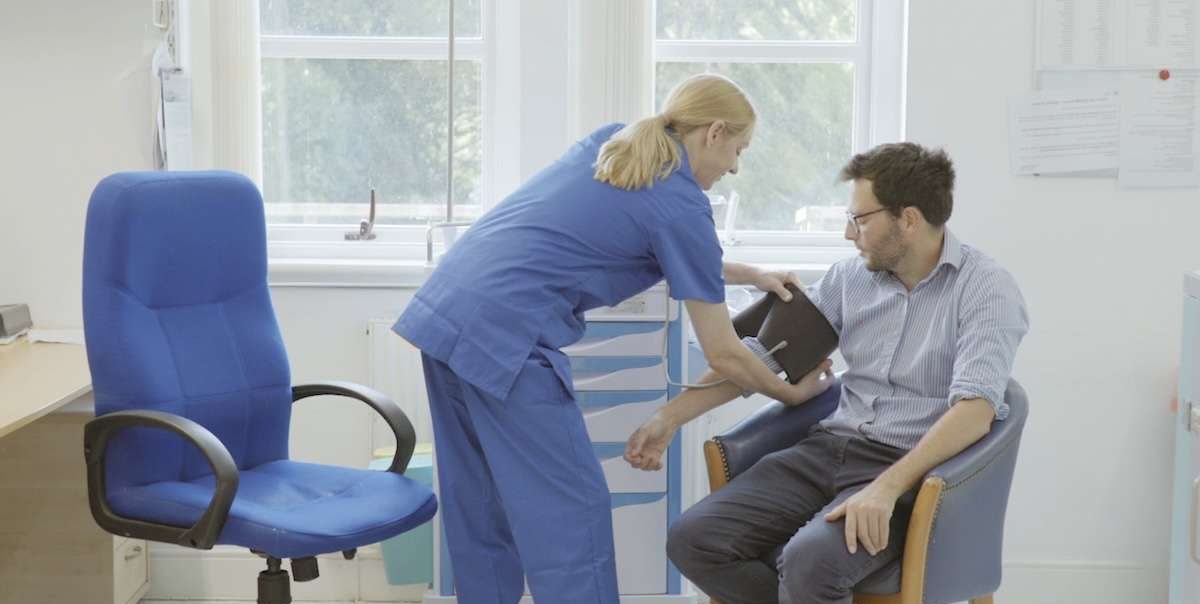
Residential Suboxone Detox Treatment
At Castle Craig, we provide medically managed Suboxone detox in a fully residential setting, guided by clinical expertise and individualised care. Our detox centre, set within the peaceful Scottish Borders countryside, offers a discreet and supportive environment designed to promote calm and healing. Our specialist-led team delivers evidence-based treatment alongside holistic therapies that support both physical stability and emotional recovery.
While Suboxone is widely used to support opioid withdrawal, it carries a risk of dependence when taken over time. This article explores key topics related to detoxing from Suboxone, including how long it takes to detox from Suboxone, common withdrawal symptoms, medications used in a medical Suboxone detox and what to expect at different stages of treatment. To learn more about our inpatient detox services for Suboxone and buprenorphine, call 01721 546 263 to speak to our team today.
What is Suboxone?
Suboxone is a prescription medicine used in Opioid Substitution Therapy (OST), typically prescribed in the UK as an alternative to methadone. It contains two active ingredients: buprenorphine, a partial opioid agonist, and naloxone, which helps prevent misuse by blocking opioid effects if the medication is injected.
In the UK, Suboxone may be offered to people withdrawing from opioids such as heroin, codeine or oxycodone, as it can help to reduce cravings and manage withdrawal symptoms. Although it is effective when prescribed correctly, Suboxone can be misused if taken in high doses, without supervision or alongside other substances. This can lead to physical dependence and the need for medically managed Suboxone detox.
What is Suboxone Detoxification?
Suboxone detoxification refers to the process of safely coming off Suboxone after a period of physical dependence. This involves gradually reducing the dosage while managing withdrawal symptoms in a controlled setting to minimise discomfort and risk.
Suboxone contains buprenorphine, a long-acting opioid, which means that detoxing can take longer than withdrawal from other substances. A medically guided approach ensures people are supported at every stage, laying the groundwork for continued Suboxone addiction recovery.
What is a Medically Managed Suboxone Detox?
A medically managed detox for buprenorphine-naloxone medication is a form of inpatient treatment that provides constant clinical supervision during withdrawal. This method uses structured tapering off the drug, symptom management and therapeutic support to help people withdraw safely from opioid detox drugs.
At Castle Craig, our Suboxone detox treatment is delivered in a calm, live-in environment by an expert team. The goal is to reduce withdrawal severity and support physical and emotional stability from the very start of the recovery process.

Start Your Recovery at a Residential Rehab Today
Difference Between Medically Managed Suboxone Detox and Medically Supervised Suboxone Detox
Medically managed Suboxone detox takes place in a residential clinic where patients receive round-the-clock care. It offers comprehensive medical support, symptom relief and close monitoring throughout the withdrawal timeline.
Medically supervised detox may involve outpatient appointments or check-ins with a doctor. While this approach can be suitable for some, it may not offer the same safety or structure as an inpatient detox centre for buprenorphine-based medication, especially for those with more severe dependency or additional health needs.
Free Buprenorphine Addiction Assessment
Castle Craig offers free addiction assessments for people struggling with Suboxone use. These assessments help us understand your current situation, substance history and treatment needs, so we can recommend the most appropriate next steps in a confidential and compassionate setting.
Although Suboxone is prescribed as part of opioid detox, it can become a drug of dependency in its own right. Our team can develop a personalised detox treatment plan and guide you through safe, medically managed Suboxone detox supported by clinical expertise. To speak with us directly or to book your assessment, call 01721 546 263.
Free Suboxone Addiction Assessment
Taking the first step and asking for help can feel daunting, but our team is here to assist you.
Benefits of Inpatient Opioid Replacement Therapy Drug Detox
Detoxing from Suboxone or other Opioid Replacement Therapies (ORT) in an inpatient centre offers many advantages. A structured residential environment provides continuous medical oversight, therapeutic support and a welcoming space away from everyday triggers.
Below are several key benefits of inpatient Suboxone detox in the UK, including medical, psychological and long-term recovery advantages. These points highlight why a medically managed Suboxone detox centre may offer the safest, most effective route to sustained recovery.
-
Medically Monitored Detox from Buprenorphine-Naloxone Therapy
At Castle Craig, Suboxone detox takes place under constant clinical care within our dedicated in-care unit. Our team monitors vital signs, adjusts medications as needed and addresses withdrawal symptoms quickly and safely while offering compassion and reassurance.
We understand the unique withdrawal profile of buprenorphine-naloxone and provide continuous attention during every stage. Suboxone detox symptoms can come on gradually and intensify over time, so medical monitoring is key. Patients receive immediate care adapted to their symptoms, health status and substance use history.
-
Withdrawal Relief for Prescription Opioid Maintenance Drugs
In a residential location, withdrawal management is tailored to the specific challenges of detoxing from long-acting medications like Suboxone. This can significantly reduce discomfort and allow people to remain engaged in substance reduction treatment.
Common interventions include anti-anxiety medication, sleep support and remedies for nausea or muscle pain. Treatments are carefully selected by medical professionals and reviewed regularly throughout the Suboxone detox process.
-
Fast-Track Entry into Detox for Opioid Replacement Dependence
Castle Craig aims to provide prompt access to inpatient Suboxone stabilisation treatment, helping people begin the recovery process as soon as they’re ready. Quick admissions help prevent deterioration and give patients immediate access to medical care and therapeutic support.
Delays in starting detox for prescribed OST medication can lead to increased substance use, overdose risk or loss of motivation. By offering fast-track admissions and clinical assessments, we give patients the opportunity to act quickly and safely. This approach also reduces the need for crisis intervention or hospitalisation.
-
Breaking Medication-Assisted Dependence in a Safe, Clinical Setting
Detoxing from Suboxone without professional support can lead to severe withdrawal symptoms and an increased risk of relapse. A secure, residential rehab environment helps manage symptoms safely while reducing temptation to use.
With inpatient care, patients are removed from triggering environments and have no access to other opioids. Medical detox for Suboxone creates optimal conditions for physical and emotional stabilisation, giving people the chance to focus fully on the early stages of recovery in a supportive space.
-
Individualised Detox Plans for Sustainable OST Recovery
Certain patients may require slower tapering schedules, additional symptom management or co-occurring disorder support. By individualising care, we improve outcomes and help reduce the likelihood of relapse after detox. Each stage of detox from Suboxone is carefully managed to promote long-term recovery from opioid dependence.
Castle Craig creates a personalised Suboxone detox treatment plan for every patient, taking into account their medical history, substance use, mental health and personal goals. Our approach is flexible and adaptive, including highly dedicated expertise in dual diagnosis care.
-
Emotional and Psychological Support Through Suboxone Withdrawal
Suboxone withdrawal often includes psychological symptoms such as anxiety, depression or low mood. Without emotional support, these symptoms can make the combination treatment detox feel overwhelming and increase the risk of returning to drug use.
In an inpatient environment, patients have access to drug addiction counselling, peer groups and therapeutic activities throughout their Suboxone detox timeline. This emotional support helps people build early coping strategies and develop a greater understanding of their triggers and behaviours, forming the basis of a more resilient recovery.
-
Transitioning Smoothly from Detox to Ongoing Recovery
Once the physical symptoms of Suboxone detox begin to ease, patients can move seamlessly into residential rehabilitation or specialised therapy. This continuity of care can reduce the risk of dropout and support more sustainable abstinence work.
At Castle Craig, detox is just the beginning. We offer a full continuum of care to guide patients from medically managed Suboxone detox into structured, long-term rehab treatment. Our team works closely with each patient to ensure that the transition between treatment phases feels manageable and well supported.
-
Calm Environment to Recover from Opioid Substitution Therapy
Crucially, residential detox provides a calming, focused environment where patients can begin healing away from the chaos of daily life. It removes distractions and offers the quiet needed to stabilise both body and mind.
In a therapeutic setting, people have space to reflect and reset. Emotional overwhelm and physical discomfort are managed with empathy and professionalism. This calm start helps patients better prepare for rehab and long-term recovery from Suboxone and other opioid substitution medications.
Private Suboxone Detox Centre Near Me
If you’re looking for support with dual-opioid therapy drug misuse, it’s important to find a detox centre that offers safe, structured care. The following sections explain how to access treatment, what to expect from a private inpatient Suboxone detox centre, and how Castle Craig can provide help and guidance.

Contact Castle Craig Suboxone Detox Centre
Castle Craig is located near West Linton, Edinburgh, United Kingdom, EH46 7DH, surrounded by tranquil countryside and open space. Our peaceful, private setting allows patients to begin recovery in a calm, medically supported environment with round-the-clock care.
Find Us
01721 546 263
info@castlecraig.co.uk
Castle Craig,
West Linton, Edinburgh, United Kingdom, EH46 7DH
To learn more about our residential detox treatment for Suboxone addiction, please call 01721 546 263. Our admissions team can explain the detox process, provide guidance and help you plan your next steps with confidence.
-
How to Find an OUD Medication Detox Centre Near You
When searching for help with detoxing from Suboxone, there are a few important steps to guide your decision. Consider the following tips when evaluating your options:
- Search for “Private Suboxone Detox Near Me” or Include Your Location: Try phrases like ‘private inpatient Suboxone detox centre near me’, ‘opioid maintenance drug detox clinic in UK’, or ‘medically managed Suboxone detox UK’ to find nearby drug treatment facilities.
- Seek Out Clinical Experience and Round-the-Clock Assistance: Look for detox centres with experienced addiction specialists and 24-hour nursing care. Suboxone withdrawal can be complex, and having medical professionals available at all times provides safety and comfort.
- Review Feedback from Former Clients: Testimonials can give insight into the quality of care, staff support and overall detox treatment experience. Positive, authentic feedback often reflects a well-run facility.
- Evaluate the Details of the Treatment Package: A strong Suboxone detox treatment plan should include medical support, psychological care, symptom management and continuing recovery planning, not just the detox itself.
- Enquire About Suboxone Detox Fees and Financing Choices: Suboxone detox costs can vary widely. Be sure to ask for a clear explanation of pricing and whether flexible payment options are available.
- Confirm Acceptance of Health Insurance Plans: If you plan to use private medical insurance, ask whether the rehab centre works with your provider and what parts of the Suboxone detox treatment may be covered.
Find Out About Our Suboxone Detox Programme
Castle Craig offers inpatient detox treatment from our on-site, 11-bed medical detox centre in the Scottish Borders countryside. Surrounded by nature and supported by a full clinical team, our detox facility provides a peaceful, structured environment for you or someone you care about to begin recovery from Suboxone dependence.
We can develop a medically managed detox and addiction recovery plan based on your specific history with Suboxone and any other substances. To learn more or to begin the admissions process today, call 01721 546 263 or fill out our online form – we’re dedicated to helping you regain your health and happiness, one step at a time.
Signs, Symptoms and Effects of Dual-Action Opioid Detox Medication Withdrawal
Below are some of the most common signs and symptoms of Suboxone withdrawal, also known as buprenorphine/naloxone dependency medicine withdrawal. This list does not cover every possible symptom, and experiences may vary depending on dose, length of use and individual health needs.
-
Early Signs of Stopping Prescription Opioid Dependency Medicine
Withdrawal symptoms from Suboxone usually appear between 24 and 72 hours after the last dose, as buprenorphine gradually leaves the system. Early signs are often mild but indicate the body’s initial response to the absence of the medication.
- Mild Anxiety or Unease: A persistent feeling of nervousness or tension not tied to an external trigger.
- Insomnia or Restless Sleep: Difficulty falling asleep or frequent awakening throughout the night.
- Muscle Aches or Body Discomfort: Subtle soreness, stiffness or discomfort in large muscles.
- Runny Nose and Watery Eyes: Clear nasal discharge and teary eyes similar to early cold symptoms.
- Increased Sweating Without Physical Activity: Perspiring more than usual despite low exertion or room temperature.
-
Moderate to Severe Symptoms of Suboxone Withdrawal Syndrome
More intense Suboxone withdrawal symptoms often appear between 48 and 96 hours after the last dose. These effects can be physically draining and emotionally overwhelming without medical support in place.
- Nausea and Persistent Vomiting: Ongoing stomach upset that may include repeated vomiting and difficulty keeping food or fluids down.
- Abdominal Cramps and Diarrhoea: Painful stomach spasms accompanied by loose or frequent bowel movements.
- Rapid Heart Rate and High Blood Pressure: Noticeable increase in pulse and blood pressure as the nervous system becomes overstimulated.
- Chills, Goosebumps or Temperature Swings: Fluctuations between feeling cold and overheated, often with shivering or skin sensitivity.
- Strong Drug Cravings or Urges: Intense mental and physical desire to take Suboxone again to escape discomfort or emotional distress.
-
Psychological Effects of Partial Opioid Agonist Treatment Detox
Psychological symptoms from Suboxone withdrawal often begin within the first few days and can continue after the physical symptoms have subsided. Psychological effects may require additional mental health support, especially if there is a history of anxiety, trauma or depression.
- Anxiety and Panic Attacks: Persistent nervousness or sudden waves of fear, often unrelated to any obvious cause.
- Depression and Low Mood: Ongoing sadness, lack of motivation or emotional numbness during or after buprenorphine withdrawal.
- Irritability and Agitation: Heightened emotional reactivity, frustration or restlessness, often triggered by small disruptions.
- Insomnia and Sleep Disturbances: Trouble falling asleep, staying asleep or waking up feeling unrefreshed.
- Difficulty Concentrating and Memory Issues: Trouble focusing, remembering details or processing information during the withdrawal process.
-
Physical Signs and Symptoms of Suboxone Detoxification
Physical symptoms typically begin within 24 to 72 hours after the last Suboxone dose. The side effects are a result of the body adjusting to the absence of buprenorphine and can vary in severity depending on prior use and health status.
- Muscle Aches and Cramps: Generalised pain or tightness, especially in the back, legs or joints during early withdrawal.
- Sweating and Chills: Sudden temperature changes that may cause cold sweats or intense shivering.
- Nausea and Vomiting: Stomach upset that may lead to ongoing nausea, dry heaving or repeated vomiting.
- Runny Nose and Watery Eyes: Cold-like symptoms caused by the nervous system reacting to withdrawal.
- Increased Heart Rate and Blood Pressure: Heightened cardiovascular activity due to the loss of opioid regulation in the system.
-
Long-Term Consequences of Untreated Suboxone Withdrawal
If Suboxone withdrawal is not properly managed, symptoms can persist for weeks or months. This extended discomfort can interfere with daily functioning and significantly increase the risk of relapse or long-term health issues.
- Persistent Fatigue: Ongoing exhaustion or low energy that continues well after the initial detox period.
- Chronic Mood Disturbances: Prolonged irritability, anxiety or depressive symptoms that interfere with emotional stability.
- Ongoing Sleep Disruptions: Continued difficulty falling or staying asleep, often leading to poor rest and daytime drowsiness.
- Physical Health Decline: Reduced appetite, weight loss and weakened immune function due to unresolved withdrawal stress.
- Increased Relapse Risk: Higher likelihood of returning to Suboxone or other opioids in an attempt to relieve symptoms.

Medications Used for Suboxone Detoxification
Medications may be used during Suboxone detox, though this depends on the person’s medical history, symptom severity and current level of dependence. Since Suboxone is itself a detox medication, withdrawal management can be complex. In some cases, medical teams may decide to taper the drug slowly or introduce supportive medications.
Below are examples of commonly used substances in a medical Suboxone detox. These must only be used under the supervision of a healthcare professional, as some carry risks of dependence or adverse effects.
- Clonidine (eases withdrawal symptoms like anxiety and sweating): May reduce nervous system overactivity, helping to calm anxiety, manage blood pressure and reduce hot flushes or chills during detox.
- Lofexidine (non-opioid withdrawal aid, similar to clonidine): Used to ease symptoms without addictive potential, often preferred for those with a history of high blood pressure or cardiovascular concerns.
- Diazepam (short-term use for severe anxiety or agitation): Can be used to reduce intense psychological distress, but due to its addictive properties, it’s only given for short durations under strict supervision.
- Prochlorperazine (for nausea and vomiting): Commonly used to ease nausea during the peak phase of withdrawal, helping patients stay hydrated and more physically comfortable.
- Loperamide (to manage diarrhoea): Helps stabilise the digestive system during detox, particularly in the first few days when gastrointestinal upset is common.
- Zopiclone (short-term relief for insomnia): May be prescribed to support sleep during early withdrawal, especially when restlessness or disrupted sleep is affecting recovery.
- Paracetamol (general pain relief and fever management): Often used to manage low-grade fever, general body pain or discomfort associated with early Suboxone detox symptoms.
- Ibuprofen (for muscle aches and inflammation): Helps relieve musculoskeletal pain or headaches that are common during physical withdrawal from Suboxone.
At Castle Craig, our use of detox medications is guided by clinical necessity and managed with the utmost care to avoid creating new dependencies. We recognise that some patients may have been prescribed Suboxone or similar treatments during a previous detox and may now be concerned about becoming dependent on a medication meant to support recovery. That’s why all prescriptions are carefully overseen by our Consultant Psychiatrist and experienced medical team, ensuring safe and appropriate use throughout your stay.
Our goal is to alleviate withdrawal symptoms safely while focusing on your overall recovery and the goal of abstinence. By using evidence-based protocols and regularly assessing your progress, we only use detox medications as a short-term tool to support your transition into sobriety, always prioritising your long-term health, well-being and abstinence.

Contact Castle Craig Today
Starting the journey to recovery from Suboxone dependence can feel overwhelming, but you’re not alone. At Castle Craig, our caring team is here to support you every step of the way, from first contact through to detox, rehabilitation and beyond. We believe in your ability to heal and begin a new chapter free from addiction. Your recovery starts with one small step, and we’re here when you’re ready to take it.
Does Health Insurance Cover Sublingual Opioid Maintenance Drug Detox Treatment?
Yes, in many cases, health insurance may cover some or all of the costs associated with medical Suboxone detox. Coverage depends on your provider, the specific terms of your policy and the types of treatment needed.
If you are covered and approved for Suboxone detox treatment with us, Castle Craig accepts private medical insurance from a wide range of major providers. Our team can guide you through the insurance admissions process and help you prepare for your upcoming substance addiction treatment.
How Much Does Residential Suboxone Detox Cost in the UK?
Residential Suboxone detox typically costs between £1,000 and £6,000 for a 7–10 day stay in the UK. If part of a full inpatient rehab programme, prices can range from £650 to £1,500 per day, or £18,000 to £40,000+ per month, depending on the provider and level of care.
The cost of detox can vary based on the severity of Suboxone dependence, medical needs and the length of stay recommended after initial assessment. To learn more about our pricing and inclusive care packages, please call 01721 546 263 or contact us here.
Suboxone Detox Timeline and How Long It Takes
Detoxing from dual-action opioid detox medicine is often the first step in addressing a deeper pattern of opioid dependence. While physical withdrawal may last several days, full Suboxone rehab is usually recommended to address long-term behavioural, emotional and psychological needs. Below, we outline the typical stages of detox from Suboxone, but ongoing care may be necessary for lasting sobriety.
-
Stage 1: Early Withdrawal Symptoms (24–72 Hours After Last Dose)
The first signs of buprenorphine withdrawal often appear within one to three days after the last dose of Suboxone. Symptoms typically begin gradually, due to the medication’s long half-life, and may include anxiety, restlessness, insomnia and flu-like discomfort.
During this stage, people might feel emotionally unsettled or physically tense as their body begins adjusting to the absence of Suboxone. Supportive care is vital to help manage symptoms, prevent complications and reduce the temptation to return to use during this vulnerable period.
-
Stage 2: Peak Suboxone Withdrawal Symptoms (72–96 Hours)
This stage usually marks the peak of physical discomfort. Suboxone withdrawal symptoms may intensify and include nausea, muscle aches, diarrhoea, shivering, increased heart rate and strong drug cravings. Emotional symptoms like irritability and anxiety can also spike.
At this point, medical detox for Suboxone is especially beneficial. Trained clinicians can offer symptom relief and provide psychological support. Structured treatment can help reduce the likelihood of relapse and offer patients a clear path forward into full buprenorphine addiction recovery treatment.
-
Stage 3: Subsiding Symptoms and Stabilisation (4–10 Days+)
By the fourth day and into the second week, many Suboxone withdrawal symptoms begin to ease. Sleep may improve, physical pain tends to fade, and people often feel more emotionally stable. However, cravings and psychological symptoms can still linger.
This phase is ideal for transitioning into further addiction treatment, such as counselling or residential rehab. Continued support and structure help solidify the progress made during Suboxone detox and allow patients to build confidence and momentum in their recovery journey.

Related Guides on Medically Managed Residential Detox
Detox Centre | Inpatient Detox | Alcohol | Drugs | Cocaine | Heroin | Crystal Meth | Valium | Tramadol | Benzodiazepines | Xanax | Codeine | Opioid | Ecstasy | Morphine | Amphetamine | Cannabis
Inpatient Suboxone Detox Treatment Admissions Process
The admissions process for Suboxone detox at Castle Craig is designed to help our team understand your specific situation, history with the drug and any co-occurring conditions or addictions. This allows us to develop a safe, effective detox and rehabilitation plan based on your individual needs.
- First Point of Contact and Confidential Meeting: Once you call or submit our online form, our admissions team arranges a confidential consultation. This is your opportunity to share your experience with Suboxone misuse and ask questions about our detox treatment options.
- Thorough Pre-Withdrawal Evaluation: You’ll complete a detailed medical and psychological assessment, either in person or remotely. This helps us understand your level of dependence, physical health and any mental health conditions that may impact the detox process.
- Confirmation of Funding or Insurance Coverage: We’ll help clarify your payment options or guide you through the insurance admissions process. If you’re using private insurance, we can explain what you have been covered for regarding Suboxone detox treatment.
- Booking and Admission Approval: Once assessments and payment arrangements are complete, a formal admission date is confirmed. We aim to admit patients quickly, often within days of initial contact, to ensure timely care.
- Check-In and Start of Suboxone Detox Care: On arrival at our facility in the Scottish Borders, you’ll be welcomed by our team and begin a structured, medically managed detox. Ongoing monitoring and support will begin immediately to help manage withdrawal symptoms safely.
Questions About Detox for Suboxone?
Contact us to discuss your treatment needs with a licensed clinician.
Find Out About Opioid Replacement Therapy (ORT) Detox Treatment
Castle Craig offers free residential addiction assessments for those struggling with opioid replacement therapy medications, including Suboxone. These assessments help our clinical team understand your history, symptoms and treatment needs before recommending a suitable plan of care.
If Suboxone detox is the right step, we can develop a personalised recovery plan tailored to your situation. We’ll also provide clear information on pricing for Suboxone detox and ongoing rehab treatment. Call 01721 546 263 or fill out our online form below to learn more.
Free Suboxone Addiction Assessment
Compassionate, expertly delivered evidence-based practices and a patient-centred approach are at the heart of our treatment model. Request a call-back from one of our professionals on any day of the week.
-
Statistics on Suboxone Use in the UK
- In 2023/24, oral buprenorphine, often prescribed as Suboxone, was dispensed to approximately 7,415 people in Scotland, with usage equating to 0.18 defined daily doses per 1,000 population per day (Public Health Scotland).
- In England, roughly 30% of patients receiving Opioid Substitution Therapy (OST) are prescribed buprenorphine formulations, while the majority are on methadone.
- There were 46 drug-related deaths involving buprenorphine in England and Wales in 2023, compared with 709 deaths involving methadone, indicating a significantly lower risk of overdose with Suboxone.
- According to medication classification, buprenorphine is considered to have moderate‑to‑low physical dependence potential but high psychological dependence potential when prescribed for opioid use disorder.
- In a misuse survey, about 37% of participants reported an intention to resume illicit opioid abuse after misusing buprenorphine, indicating that misuse can correlate with relapse behaviour.